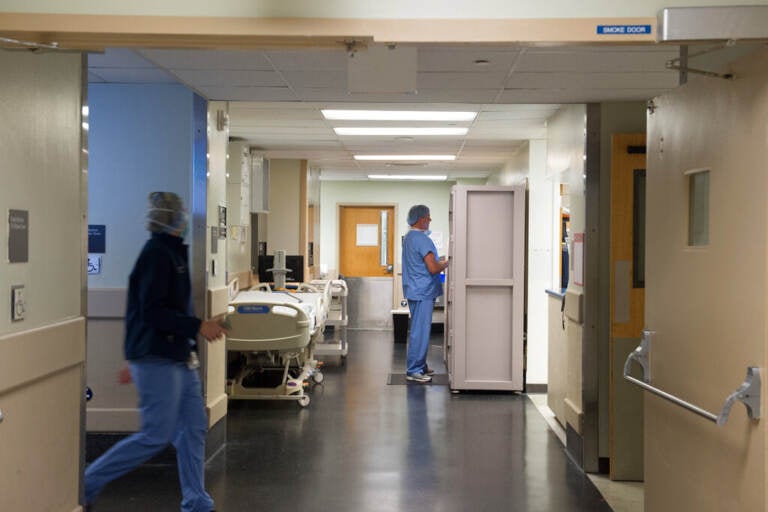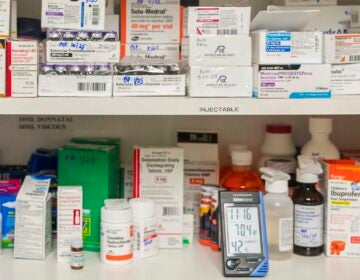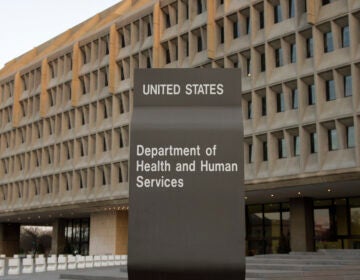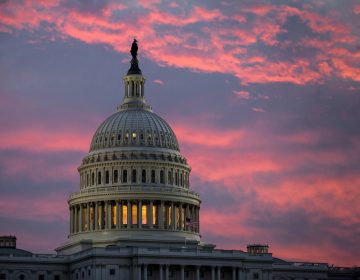Medicare open enrollment is just around the corner. Here’s what you need to know when shopping for health plans
Medicare’s annual open enrollment period runs from Oct. 15 through Dec. 7.
Listen 1:15
This file photo shows medical professionals work in the surgical facility during a kidney transplant surgery at MedStar Georgetown University Hospital in Washington D.C., Tuesday, June 28, 2016. AP Photo/Molly Riley)
From Philly and the Pa. suburbs to South Jersey and Delaware, what would you like WHYY News to cover? Let us know!
Nearly 5 million people in Delaware, New Jersey and Pennsylvania are eligible for Medicare, data shows. Medicare is a federal health insurance program for adults 65 and older and some younger people with disabilities.
Once a year, the program’s open enrollment period allows participants to shop around and make changes to their coverage before they’re locked into insurance plans for the coming year.
This year’s open enrollment period runs from Oct. 15 through Dec. 7. Plans selected during this window will be for coverage in 2025.
Because there are many different medical and prescription plans to choose from, cities, counties, states and federal agencies offer assistance programs to help people with the process.
Glenda Radical leads about 15 Medicare counselors in Delaware County’s PA MEDI program who offer residents guidance on what plans might be best for their health needs and financial circumstances.
“It’s so very important that you just check, make sure that you have a plan that works for you and not wait until after the open enrollment season ends,” Radical said. “Because once the season ends, for some people, they may not be able to make a change until next October. So, you want to make certain you do it now.”
Reviewing new plans
A majority of enrollees will be able to pick from original or traditional Medicare coverage plans, Medicare Advantage plans, Part D prescription coverage and supplemental insurance known as Medigap plans.
Returning customers are likely already enrolled in some of these plans for the current year. That coverage may be meeting all their current health needs, but Radical said that doesn’t necessarily mean it’s the best plan for next year.
That’s because premium costs and deductibles can change year to year. And so can a person’s financial circumstances, which is why Radical recommends everyone review plans during open enrollment, even if they are happy with their current coverage.
“A lot of times people say, ‘If it’s not broken, I’m not going to fix it,’” she said. “The thing is with health insurance plans, everything might be wonderful, but if you don’t check to find out what the cost is from year to year, you could hold onto a plan that could be very expensive going into the forthcoming year.”
Plans can drop or add specific medications and prescriptions that they will cover. Individual doctors, specialists and health care organizations can also choose to leave certain Medicare plans, which means their care and services may no longer be considered in-network for coverage.
Radical and her team of counselors advise residents on this as they run plan comparisons for people reviewing their options.
“So, the goal of PA MEDI is, once we do plan comparisons, we actually stop at that point and say, ‘We want you to call your doctors and your specialists to make certain your doctors, specialists and hospitals are part of the plans that we have recommended,’” she said.
Financial savings programs and local enrollment assistance
People with low or limited incomes may be eligible for additional financial assistance and discounts that can apply to their Medicare monthly premiums or out-of-pocket costs.
Adults who qualify for Medicare Savings Programs can get help with paying for premiums as well as deductibles, coinsurance and copayments, according to the U.S. Centers for Medicare and Medicaid Services.
There is also some financial assistance available specifically for Medicare Part D plans, which cover medications and prescriptions.
The “Extra Help” program can reduce premiums and other costs, and it can also eliminate late enrollment penalties for qualified candidates. Some people will automatically get this assistance while others may have to apply, according to CMS.
People who are interested in speaking with Medicare counselors to get help and guidance with plan selection and coverage can contact programs under their local State Health Insurance Assistance Program (SHIP).
In New Jersey, there are SHIP local offices in every county. Similar services and offices in Delaware are provided by the state’s Medicare Assistance Bureau. And in Pennsylvania, assistance and counseling through PA MEDI programs are available in most counties.
WHYY is your source for fact-based, in-depth journalism and information. As a nonprofit organization, we rely on financial support from readers like you. Please give today.






